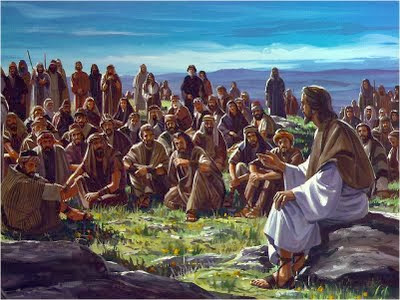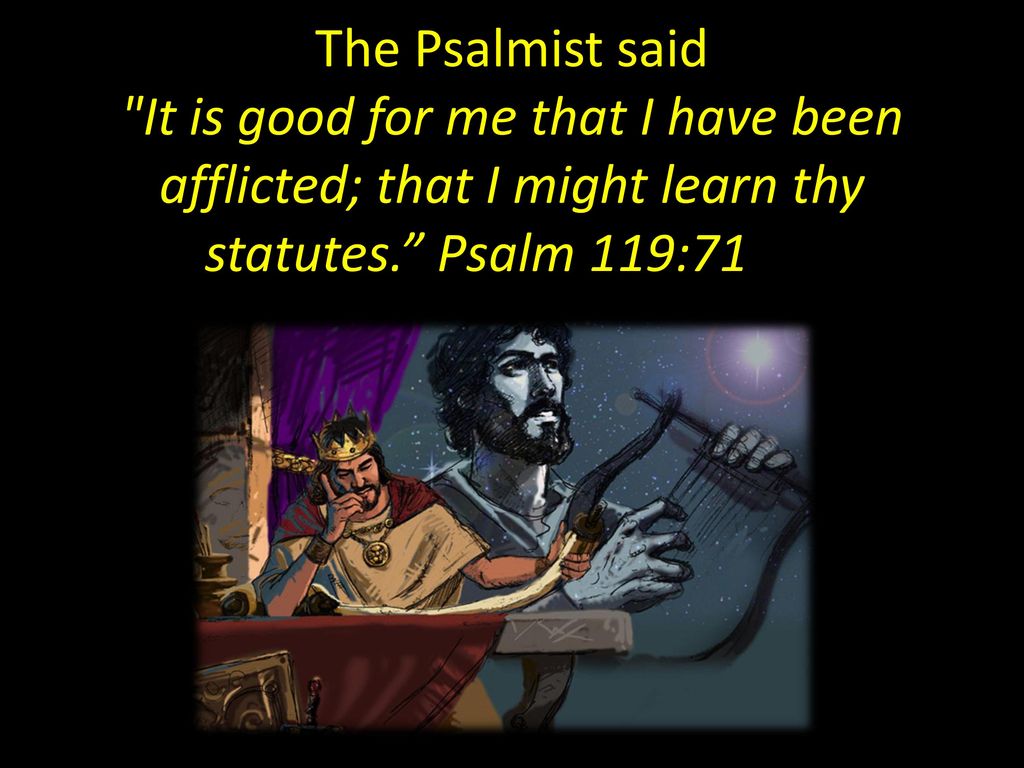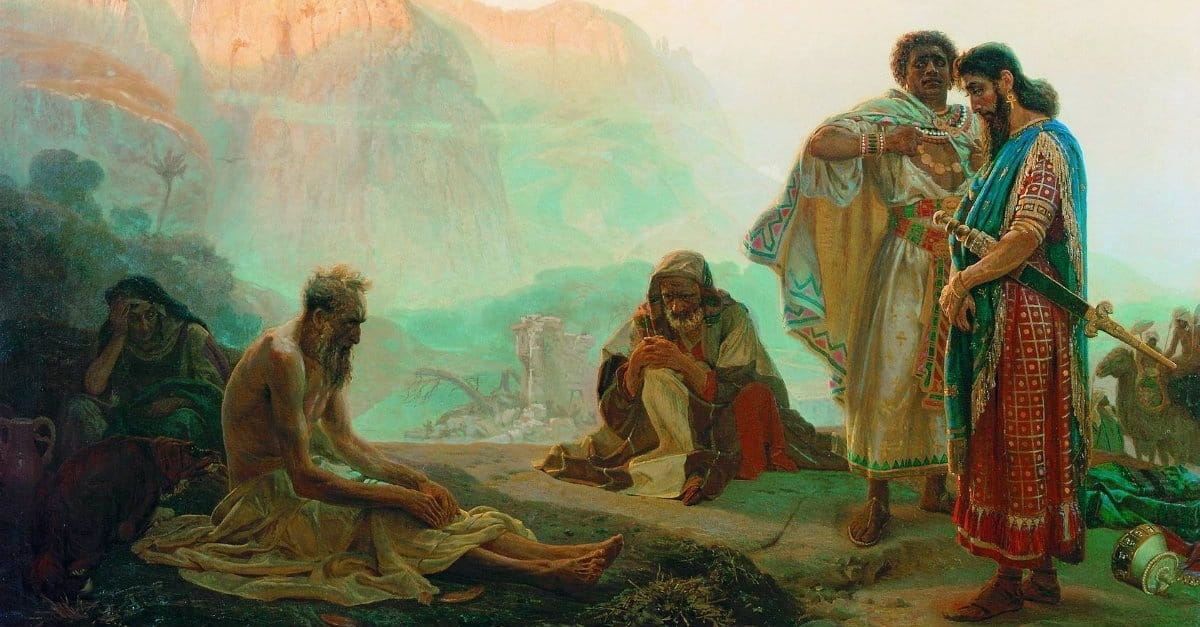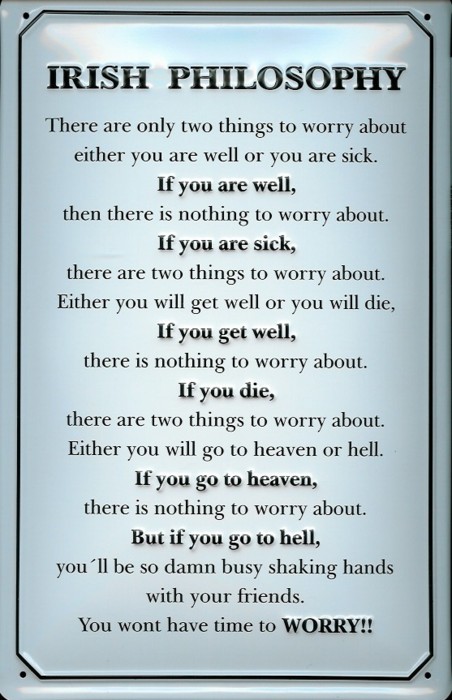While walking by the Sea of Galilee, he saw two brothers, Simon (who is called Peter) and Andrew his brother, casting a net into the sea, for they were fishermen. And he said to them, “Follow me, and I will make you fishers of men.” Immediately they left their nets and followed him. And going on from there he saw two other brothers, James the son of Zebedee and John his brother, in the boat with Zebedee their father, mending their nets, and he called them. Immediately they left the boat and their father and followed him.
(Matthew 4:18-22 ESV)
A disciple is someone who follows Jesus.
But what does that word "follow" mean?
Draw your attention to four implications that spring from this word "follow" for these fishermen, and then by extension for us. So what does it mean to "follow Jesus"? I think this text answers that question in at least four ways.
1. A true disciple lives with radical abandonment for His glory
First, to follow Jesus means to live with radical abandonment for his glory. So, you go back to Matthew, chapter 4, verse 17.
Jesus says, right before this, "Repent, for the kingdom of heaven is at hand." That word "repent" literally means to renounce, to acknowledge, to confess your sin, to express sorrow over your sin, to turn from your sin, to renounce your sin and yourself.
Jesus later says, in Luke chapter 14 verse 33, "Any of you who does not renounce all that he has, cannot be my disciple." This kind of renouncing is all over this passage. If you think about these disciples and what they were renouncing, what they were abandoning, what they were leaving behind as they followed Jesus. Just think about them for a minute. They were leaving behind their comfort, leaving behind everything that was familiar for them, all that was natural for them, leaving comfort for uncertainty.
Jesus didn't tell them where they were going. He just told them who they'd be with. There's a whole sermon right there. Followers of Jesus don't always know where they're going, but they always know who they're with. We don't have time for that sermon. So, they were leaving behind their comfort.
Second, they were leaving behind their careers. This was an abandonment of profession for these guys, at least temporarily. We'll come back to how this applies to us. Just think through the lens of their lives. They were leaving behind comfort, careers. They were leaving behind possessions. They dropped their nets.
Now, these guys were obviously not the most economically elite in their society, but the fact that they had a boat, a successful trade as fisherman, shows that these men had much to lose in following Christ. We find out later that they still had a boat, still had some various other things, but the reality is at this moment they followed Jesus with nothing in their hands. Nothing in their hands. Their possessions, their position... This is huge. It was common in that day for people to attach themselves to teachers in order to promote themselves. That's why you'd follow a rabbi in that day.
The problem here with these disciples is that this is not a step up the ladder for them, this is a step down the ladder. The rabbi they were following would eventually find himself crucified as a criminal on a cross. They were leaving behind their families. James and John leave their father.
They're not the only ones to do this. Remember Luke, chapter 9, where Jesus says to a man who just wants to just go back and say goodbye to his family. He says, "Don't look back. Put your hand to the plow. Look forward." Their families, their friends, their safety. This is a rabbi, a teacher, who would soon say to them, "I'm going send you out like sheep among wolves." Not good news. "All men will hate you because of me. They will persecute you." They were abandoning their safety.
Following Jesus obviously meant leaving behind their sin. That's the core of what it means to repent, to turn from our sin. And all of this pointing ultimately to how they were abandoning themselves.
This is the message that Jesus would say to them over, and over, and over again. "If you're going to follow after me, you must deny yourself." In a world where everything revolves around protecting yourself, promoting yourself, preserving yourself, entertaining yourself, comforting yourself, taking care of yourself, Jesus says, "Slay yourself."
So don't buy it. And if you’re a church leader then don't sell it. So many Christians have bought it, and so many church leaders have sold it, this idea that all you need to do is make a decision, pray a prayer, sign a card, become a Christian, and you keep your life as you know it. It's not true. You become a follower of Jesus and you lose your life as you know it. I want to be careful here.
I'm not saying, nor could I say based on the whole of the New Testament, every follower of Jesus must lose their career, sell, give away all their possessions, leave their family behind, physically die for the gospel. But the New Testament is absolutely clear on these things. For all who follow Jesus, comfort and certainty in this world are no longer our concerns. Our career now revolves around whatever Jesus calls us to do and however he wants to use us in our careers to spread the good news of his kingdom. Our possessions are not our own.
We no longer live for material pleasure in this world. We forsake material pleasure in this world in order to live for eternal treasure in a world to come. And this could mean any one of us selling everything we have. Position, no longer our priority. When it comes to family, absolutely.
Based on the whole of the New Testament, we are commanded to honor our parents, to love wife or husband, provide for children. So you can't use passages like this to justify being a lousy son, or daughter, or spouse, or parents, or whatever. Our love for Jesus, according to Matthew, chapter 10, should make love for our closest family members look like hate in comparison. Wherever he says to go, we go, knowing that because self is no longer our god, safety is no longer our priority.

I think about two families that we just sent out last month. One moving to the heart of the Middle East, the other to the heart of Central Asia, both among extremely difficult, dangerous to reach people groups. One of these husbands tells our church, "Some of you think that we are being reckless." He's sitting there with his wife and his two young kids, going into the heart of Muslim Middle East. He says, "Some of you think we are being reckless." And he looked at our church and he said, "I think we're in far greater danger of being safe then we are reckless in contemporary Christianity."
And I agree wholeheartedly. Followers of Christ, we do not bow at the altar of safety in this world. We die to self. We die to sin. We risk our lives in obedience to Him. This is what it means to follow Him. To follow Jesus is to hold loosely to the things of this world, comfort, careers, possessions, position, family, friends, safety, ourselves, to cling tightly to the person of Christ and the mission of His kingdom.
Now that's... It may sound extreme to some, but don't forget who the "me" is here. To leave behind, lay down and abandon everything in your life doesn't make sense until you realize who Jesus is. When you realize who He is, when you realize who Christ the King is, leaving behind, laying down, abandoning everything in our lives is the only thing that makes sense.
Look at Matthew 13:44. Jesus tells a story of a man walking in a field who stumbles upon a treasure. Nobody else knows it's there. This guy knows that, "This treasure hidden in a field is worth more that everything I've got put together." So what does he do? He goes, covers it back up, goes, he sells everything he has. The text says with gladness he sells everything he has. People come up to him and say, "You're crazy. What are you doing? Sell everything you have?"
He says, "I'm going to buy that field over there." They say, "You're going to buy that field? You're nuts." He smiles and says, "I've got a hunch." He smiles. He's doing this with gladness. He's abandoning everything with gladness. Why? Why is he smiling? Because he knows he's found something that's worth losing everything for. Brothers and sisters, we have found in this King someone who is worth losing everything for.
To follow Christ, to live with abandonment for His glory. Now, some might say to that, "Are you saying that Christianity then is based on what we must do, what we must let go of, extreme things we need to do in order to become a follower of Jesus?" No. So follow with me.
2. A true disciple lives with joyful dependence on His grace
Here’s the second reality. In Matthew 4, to follow Jesus, yes, is to live with abandonment for His Glory. But right along side that, to follow Jesus is to live with joyful dependence on His grace, to live with joyful dependence on His grace. So, behold the beauty of God's grace. And these words follow me. Feel this, the wonder of this.
Jesus taking the initiative to choose his disciples. This is huge. I mentioned it was common in first century Judaism for disciples to attach themselves to a rabbi to study under. But the beauty of what we're seeing here is that these men don't come to Jesus. Jesus comes to them. Jesus initiates the relationship.
He does here, at the beginning of the New Testament, what God the Father has done all throughout the Old Testament. God choosing Noah, Abraham, Moses, David, choosing the prophets, choosing Israel to be His people. And just as the Father chose in the Old Testament, we've got Jesus saying to His disciples in John 15, "You did not choose me. I chose you." And he didn't choose these guys because of any merit in them. He chose these guys solely because of mercy in Him.
So, it's this point in commentaries or sermons on Matthew 4 that I sometimes hear people start to describe all the reasons why Jesus would choose fisherman to be his disciples. Because they have this or that skill. They have this perspective or that perspective. If that's the direction we go, we'll miss the point from the start. Jesus did not call these guys because of what they brought to the table. These four guys and the other guys that followed after them, did not have many things at all in their favor.
Lower class, rural, uneducated Galileans, commoners, nobodies, not well-respected, hardly the cultural elite, not the most spiritually qualified for the task, exceedingly narrow-minded, ignorant, superstitious, full of Jewish prejudices, misconceptions, animosities. This is who Jesus chose. You say, "Well, you're being kind of hard on them." The reality is it's not just them, it's us. It's you and I, in this room, that have nothing to draw Him to us. Sinners, rebels to the core, running from God and the stunning reality of the gospel is that Jesus comes running after us. Jesus, this Jesus, takes the initiative to call us to Himself.

My wife and I struggled for years to have children. The Lord led us on a journey of adoption. We put a map on the table and said, "Lord, where are you leading us to adopt." And he led us, internationally, to the country of Kazakhstan. I don't think I knew Kazakhstan existed before that process. But after months of praying, we put in an application to adopt a Kazakh child. I remember somebody we ran across, when we told them we were adopting a child, their first response was, "A real one?" No, a plastic one. We're going to put it on our mantle and look at it. Of course we're adopting a real child.
So, there's a variety of things you don't say to parents that are adopting. That would be, I think, at the top of the list. So, we're walking through this adoption process, which is long and grueling in so many ways. Some of you have been there. Forms, fingerprints, home studies, background checks, physicals. We were trying to meet a particular deadline and had a physical, at one point, that we had to get checked off on.
So we went to the doctor together and everything was going smooth, my wife and I were there, until we got to the eye chart deal. And I still maintain that the light in this hallway was dim. I went up first. She said, "Cover one eye and start reading." I got, maybe, two rows down and I start struggling and I start thinking, "I can't do this. I can't miss this. We're going to miss our deadline. It will set us back." And so I'm stressed out, and she can tell that I'm getting stressed out, a little flustered. So she says, "Why don't you try the other eye." I said, "Okay, I'll do that."

But, in my nervousness, I've been pressing down so much on this eye, that when I took it off everything was blurry. I couldn't see the top letter. I went, "Oh, no." And she said, "Sir, why don't you step aside and let your wife come up and do it, and then you can try again." So, all right, I'll do that. So, I'm over here trying to get my eyes right and then finally I get my eyes right. My wife is still going, so I look down and I memorize the letters.
So, I step back up and just start acing the thing. I'm like, "Ma'am, I can do this with two eyes closed if you want." So, checked that off. We went through this whole process over a year. And then one day, sitting at a computer, I receive this email with a picture of a 10-month old little boy.
And six years ago this last month, the day after Valentine's day, we walked into an orphanage in this small, obscure city in Kazakhstan and we held this baby boy in our arms. Not long thereafter, he became our son, Caleb. I share that with you. So, picture here, see a parallel with adoption here. Adoption begins with the parents initiative, not with a child's invitation.
Before Caleb was even born, before he was ever abandoned in that children's hospital in Kazakhstan, he had a mom and dad who were planning to adopt him. And while he was lying alone at night in an orphanage in Kazakhstan, he had a mom and dad who were working to adopt him. One day, when Caleb was placed in the arms of mom and dad, he had no idea of all that had been done completely apart from him to bring him to that point. This orphan boy became our cherished son, not because he pursued us, but because we pursued him before he was ever born.

So, in light of that picture, I remind you of Ephesians, chapter 1. "Blessed be the God and Father of our Lord Jesus Christ who has blessed us in Christ with every spiritual blessing in heavenly places, even as He chose us in Him before the foundation of the world. In love, he predestined us for adoption as sons through Jesus Christ, according to the purpose of His will to the praise of His glorious grace.” Oh, Christian, just feel this. Right there. Some people are saying, "I don't know about this predestination stuff." I'm not saying I can explain this, but I am saying that I don't want to take Ephesians 1 out of the Bible. Just feel this, feel this right where you're sitting.
Before the sun was ever formed, before a star was ever put in the sky, before mountains were put on the land and oceans poured out between them. Before any of that, God Almighty on high set his sights on your soul. And he purposed to save you from your sin. Gracious initiative. So nothing in the Christian life is born out of our merit, everything is born out of His mercy. He takes initiative to choose us.
Then he provides us with the power to use us. "Follow me," he says, "And I will make you fishers of men." Not, go make fishers of men. "I'm going to do this in you. My grace in you is going to transform you." There's no way these disciples could carry out the commands that Jesus would give them.
He would have to do this in them. Why does He design it that way? So that He gets the glory through them, through us. You think about these guys. You've got Peter, the disciple with the foot-shaped mouth, who would one day preach the first Christian sermon. And just like that 3,000 plus people are saved.
All throughout, you can go and all these other guys, Andrew, James, John, Matthew, all these guys... In our lives, God do a work in our lives and the churches we lead for which You alone can get the glory, for which You alone can get the glory. I told the story recently... Just been deeply impacted by some time in India a few months ago. Two guys, Oneal and Hari, chicken farmer and a school superintendent, who three years ago on one of the most unreached, darkest places on the planet, began to share the gospel in one village. Three years later, there are 350 different churches in 350 different villages that have come about from a school superintendent and a chicken farmer. I asked them, "What'd you do?" They said, "Only the hand of God could have done this."
And my heart leapt inside, and thought, "I want to be a part of something in my life, in this country, for which only God can get the glory for." Disciples being made, churches being multiplied.
3. A true disciple lives with faithful adherence to Jesus Third thing to follow Jesus is to live with faithful adherence to His person. Jesus is not saying, "Follow this path, follow these rules." He's saying, "I'm the path. I'm the life. I'm the way. Follow Me." He's inviting us into a relationship with him where He is our life. For followers of Christ, Jesus is not part of our life. He is our life. Period. Which then leads into the last truth.
4. A true disciple lives with urgent obedience to His mission
Fourth, to follow Jesus is to live with urgent obedience to His mission. "Follow me," Jesus says, "and I will make you fishers of men." So, see it, see it, see it. A proper understanding of what it means to be a disciple of Jesus inevitably leads to making disciples of Jesus. I wrote a book that came out a couple of weeks ago called "Follow Me", and I don't mention that because I'm trying to sell books. I don't make any money off those books.
The reason I want to even mention that is because I set out to write on disciple-making. I was writing chapters about, “Here is what we need to make disciples. Let's go and make disciples." But as I was writing it, I felt like I was trying to cajole people to go out and make disciples, which seems foreign to the New Testament.
When Jesus stood with these disciples on the mountain in Matthew 28, at the end of this book, he didn't have to cajole these guys to go and make disciples. He had to tell them to stop and wait, that they'd blow if they didn't have the Holy Spirit. So, what had happened in their understanding of what it means to be a disciple? They'd seen Jesus. They'd lived with Him. They'd seen Him die on a cross, rise from the grave.
They were ready to go. Their understanding of what it meant to be a disciple was leading them to go and make disciples. So, then I began to think, "What if, what if one of the primary reasons, if not the primary reason, why we have this spectator mentality in the church, and why so many people are sitting passively by when people are on their way to hell around us, and we're just soaking it in the church as spectators on the sidelines, why is this? Could it be because we've misunderstood what it means to be a disciple in the first place? Could it be that we, even as church leaders, have so minimized the magnitude of what it means to follow Him?
And as a result, we try to cajole people into going and making disciples. When if they understood what it means to be a disciple, we wouldn't have to do any kind of superficial cajoling. They'd be supernaturally compelled to give their lives to this. It's impossible to believe this gospel and to know this Christ and be silent. A privatized faith and a resurrected Christ is practically impossible. So, yes, Dietrich Bonhoeffer has taught us well, that the cost of discipleship is great.
To live with radical abandonment for His glory, faithful adherence to His person, urgent obedience. This is costly. This could cost us and the people we lead our lives. But I submit to you this morning that the cost of nondiscipleship is far, far, far greater. The cost of nondiscipleship is great for scores of people in the church who are sitting comfortably right now under the banner of Christianity, but have never counted the cost of following Christ. Many eternally deceived.
There is great cost for all who settle for casual association with Jesus and miss out on the abundance, and satisfaction, and joy that He's designed for us. There's a cost that comes to monotonous routine religious Christianity. So, don't do it and don't lead churches like that. We'll waste our lives away like that, and the cost will be great for us in the church, in our lives. The cost of nominal Christianity will be great for those who are lost in this world, for people in our communities, in our cities, for people groups around the world who will go on without the gospel, because we are content with not making disciples of all the nations.
Because in our casual approach to Christianity, we are leaving them on a road that leads to an eternal hell. The consequences of casual, cultural Christianity in the world are tragic, eternally tragic. So I urge us, from the beginning of this conference, in view of the majesty of the King who's called us, let's follow Him with abandonment for His glory, with dependence on His grace, with adherence to His person, and with urgent obedience to His mission.
Please join Verge Network.
http://my.vergenetwork.org/the-4-marks-of-a-true-disciple-david-platt/




















 Esse é Aquele que a Bíblia descreve como “um homem de dores que sabe o que é padecer” (Isaías 53:3) — alguém que passou pelo maior sofrimento de todos e entende suas piores dores emocionais e físicas. Ele é tudo que você poderia desejar: amigo, conselheiro, guia, professor e pai. Ele é Jesus, o Filho de Deus.
Esse é Aquele que a Bíblia descreve como “um homem de dores que sabe o que é padecer” (Isaías 53:3) — alguém que passou pelo maior sofrimento de todos e entende suas piores dores emocionais e físicas. Ele é tudo que você poderia desejar: amigo, conselheiro, guia, professor e pai. Ele é Jesus, o Filho de Deus. “Porque Deus amou o mundo de tal maneira que deu o seu filho unigênito, para que todo aquele que nele crê não pereça, mas tenha a vida eterna” (João 3:16).
“Porque Deus amou o mundo de tal maneira que deu o seu filho unigênito, para que todo aquele que nele crê não pereça, mas tenha a vida eterna” (João 3:16).
 Quando chegar a hora dos anjos o acompanharem ao Céu, você ouvirá Jesus lhe dizendo: “Meu querido, você se saiu muito bem! Entre! Vamos comemorar! — Por toda a eternidade!”
Quando chegar a hora dos anjos o acompanharem ao Céu, você ouvirá Jesus lhe dizendo: “Meu querido, você se saiu muito bem! Entre! Vamos comemorar! — Por toda a eternidade!”




























